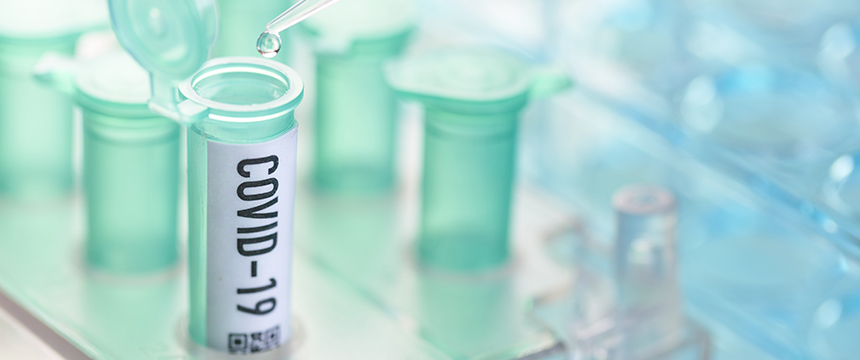Managing the Commercial Impact of the Coronavirus: FAQs for the Life Sciences Industry

“You don’t want to be complacent. You always want to be ahead of the curve.” Dr. Anthony Fauci, M.D., Director of National Institute of Allergy and Infectious Diseases.
As the coronavirus outbreak continues to wreak havoc on markets and industries in the U.S. and around the world, businesses are now confronting significant and unique challenges. Successful navigation of these challenges will require thoughtful and comprehensive planning. Foley has created a multi-disciplinary and multi-jurisdictional team, which has prepared a wealth of topical client resources (see Foley’s Coronavirus Resource Center) and is prepared to help our clients meet the legal and business challenges that the coronavirus outbreak is creating for stakeholders across a range of industries, including automotive, manufacturing, technology, solar, hospitality and travel, healthcare, life sciences, food, fashion and apparel, and sports & entertainment.
Below is the first installment to the Coronavirus FAQs with respect to Life Sciences.
Impact of COVID-19 on the Drug and Medical Device Supply – Is there the Potential for Drug and Medical Device Shortages in the US?
Yes. FDA has reported that there is a shortage of one unnamed drug as a result of the coronavirus. Many active ingredients, excipients and finished drug products are produced at facilities outside of the U.S. The FDA is communicating with companies in China to ascertain whether there will be an interruption in the supply chain. Given the volume of products manufactured outside of the U.S., it is likely that the manufacture of a certain number of drug products will be impacted by challenges in the workforce, and delays in manufacturing and shipping of products. While there have been supply issues with regards to personal protective equipment such as surgical gowns, gloves, masks, respirator protective devices, or other medical equipment designed to protect the wearer from injury or the spread of infection or illness, that there have been no reported shortages of critical or life-saving medical devices in the U.S.
Beware of Products Claiming Effectiveness Against COVID-19.
There is no product, whether it is a drug or dietary supplement, currently available that is safe and effective against COVID-19. On March 6, 2020, the FDA and FTC recently sent Warning Letters to seven (7) different companies marketing teas, essential oils, tinctures and colloidal silver making claims that the products are effective and safe to mitigate, prevent, treat or cure the coronavirus. Please seek and follow your healthcare professional’s advice on products that may help alleviate any flu symptoms that you may be experiencing.
Is There Vaccine Available to Protect Against COVID-19?
No. At this time, there is no vaccine to prevent the coronavirus. The FDA is working with vaccine developers and other researchers and manufacturers to help expedite the development and availability of medical products such as vaccines, antibodies, and drugs to prevent COVID-19. It will likely be about one (1) year or longer before a vaccine to protect against the coronavirus has completed the safety and efficacy tests necessary to support FDA approval.
Are Diagnostic Tests for SARS-Co-V-2 to Assist in the Diagnosis of COVID-19 Being Developed?
Yes, laboratory developed tests are available. Roche Molecular Systems has a test for detecting nucleic acid from SARS-CoV-2 in nasopharyngeal and oropharyngeal swab samples. Quest Diagnostics and LabCorp have also developed a test for use with specimens collected by physicians and other healthcare providers, pending review by the FDA under Emergency Use Authorization (see below). Rapid tests are in development by at least DiaSorin and Qiagen. Other diagnostic companies are in the process of developing additional tests and providing reagents for diagnostic testing (e.g., Integrated DNA Technologies and ThermoFisher).
Can Diagnostic Tests for COVID-19 be Expedited to Market?
Yes. Under FDA’s Emergency Use Authorization (EUA), which under section 564 of the Food Drug & Cosmetic Act, allows FDA to permit “unapproved medical products or unapproved uses of approved medical products to be used in an emergency to diagnose, treat, or prevent serious or life-threatening diseases or conditions caused by CBRN threat agents when there are no adequate, approved, and available alternatives.”
How Can One Apply for an Emergency Use Authorization (EUA) for SARS-CoV-2 Diagnostic Tests?
FDA has made available on its website templates for EUA submissions relating to SARS-CoV-2 test kits and CLIA certified lab testing.
For more information about this, please contact your Foley relationship partner. For additional web-based resources available to assist you in monitoring the spread of the coronavirus on a global basis, you may visit the CDC and the World Health Organization.
Click here for Foley’s Coronavirus Resource Center for insights and resources to support your business during this challenging time.


